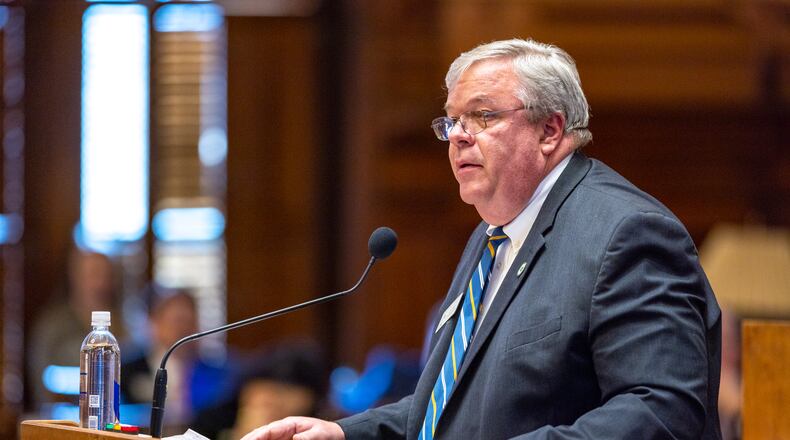The Georgia House on Thursday overwhelmingly backed 4% raises for many state workers and more money for law enforcement, education and mental health programs.
The raises are included in the spending plan for fiscal 2025 — which begins July 1 — that the House approved 172-1.
It came a week after Gov. Brian Kemp signed a midyear budget that includes $5.5 billion in extra money for things such as massive renovations on Capitol Hill, a new medical school at the University of Georgia, a new prison, and miles and miles of roads.
The midyear budget runs through June 30.
The fiscal 2025 budget now goes to the Senate for its consideration.
State tax collections have been slow for the past year, but the state is sitting on $16 billion in “rainy day” and undesignated reserves, so Kemp and lawmakers have backed higher spending since the session began in January.
The state spent about $26.6 billion — excluding federal funding — in fiscal 2020, the last budget plan approved before the COVID-19 pandemic hit. Last year, it was more than $32 billion. The midyear plan Kemp just signed boosted state spending to nearly $38 billion. Of that, $2 billion would come out of “undesignated” reserves.
All that matters because the money the state collects in taxes helps pay for K-12 schools, colleges, public health care, prisons, policing, business regulation, roads and a host of other services.
Under the Kemp budget plan endorsed by House leaders, state law enforcement employees would receive $3,000 raises, on top of the $6,000 increases approved last session. Child protection and placement services caseworkers in the Division of Family and Children Services would also receive $3,000 raises.
Other rank-and-file workers would receive 4% increases — up to about the first $70,000 in salary — and teachers would get $2,500 more.
Lawmakers have backed raises in recent years to improve high turnover rates in state agencies.
“The slow and steady increases in state salaries — both across the board and targeted — are moving the needle on state employee recruitment and retention,” said House Appropriations Chairman Matt Hatchett, R-Dublin.
Hatchett told colleagues the new starting salary for prison guards — under the budget — would be almost $45,000 a year, and new state troopers would receive $64,000. The House included an extra $15 million to improve the pay of assistant district attorneys. Hatchett said the starting pay for prosecutors would go from $58,000 to $71,000.
In addition, the House backed half of the spending needed for a judiciary-backed proposal to greatly increase the salaries of the state’s top judges.
The spending plan includes more than $200 million extra to pay for transporting children to school, something local officials have requested for years, and $104 million would go to schools for security upgrades.
The House backed hundreds of millions of dollars more for Medicaid, the state-federal health care program for the poor and disabled, including big money to increase payments to nursing home operators and other providers.
About the Author
Keep Reading
The Latest
Featured




